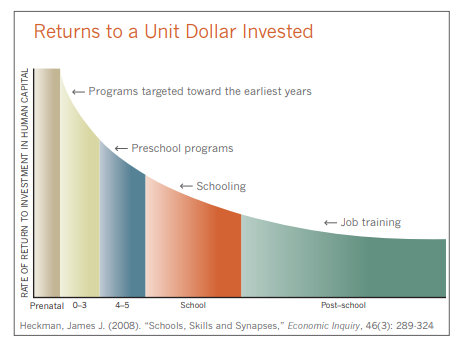Prioritise quality early childhood education for at-risk children
At a time when budgets are to be cut we must consider the impact on associated longer term outcomes.
James J. Heckman is the Henry Schultz Distinguished Service Professor of Economics at The University of Chicago, a Nobel Laureate in Economics and an expert in the economics of human development.
His research shows that investing in early childhood education is a cost-effective strategy - even during a budget crisis. Deficit reduction will only come from wiser investment of public and private dollars. Data shows that one of the most effective strategies for economic growth is investing in the developmental growth of at-risk young children. Short-term costs are more than offset by the immediate and long-term benefits through reduction in the need for special education and remediation, better health outcomes, reduced need for social services, lower criminal justice costs and increased self-sufficiency and productivity among families.
The earlier the investment, the greater the return on investment.
The highest rate of return in early childhood development comes from investing as early as possible, from birth through age five, in disadvantaged families.
Preventative approaches, which tackle problems early, can minimise costs in the long-run and provide enhanced outcomes for individuals, taxpayers and society as a whole.
Check out the full article online:
The Heckman Equation
Invest in early childhood development: Reduce deficits, strengthen the economy.
www.heckmanequation.org


